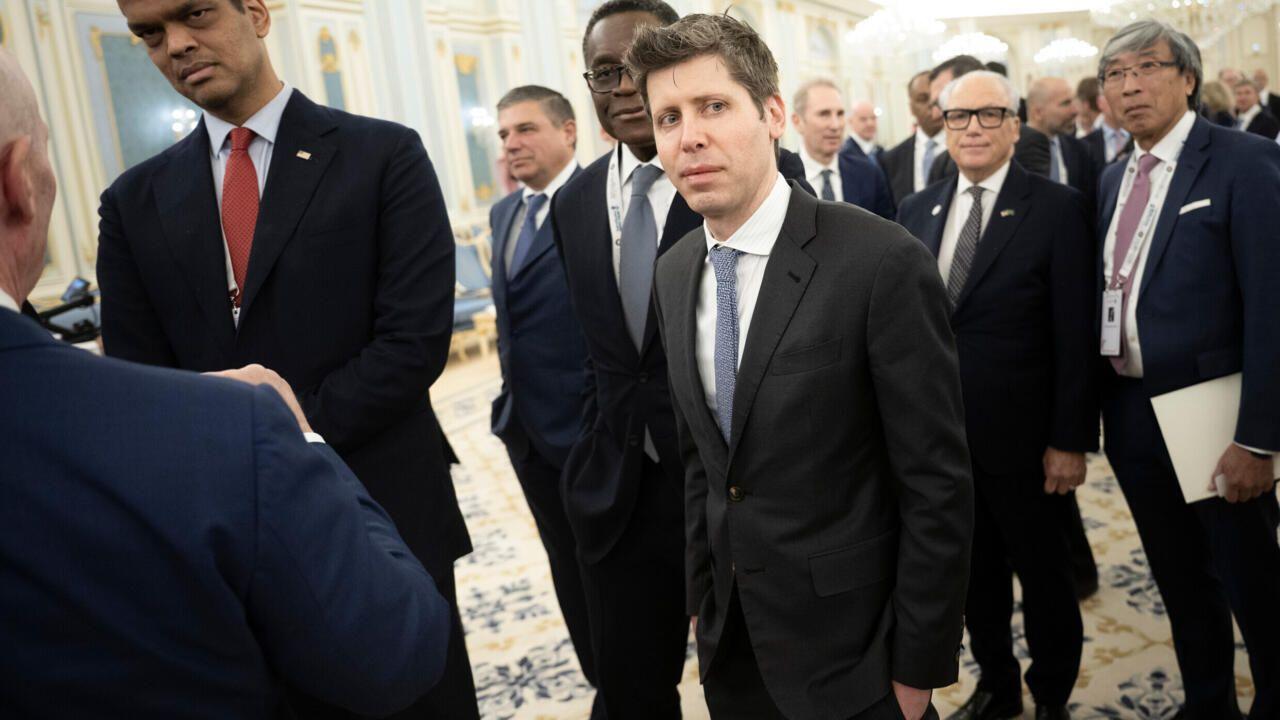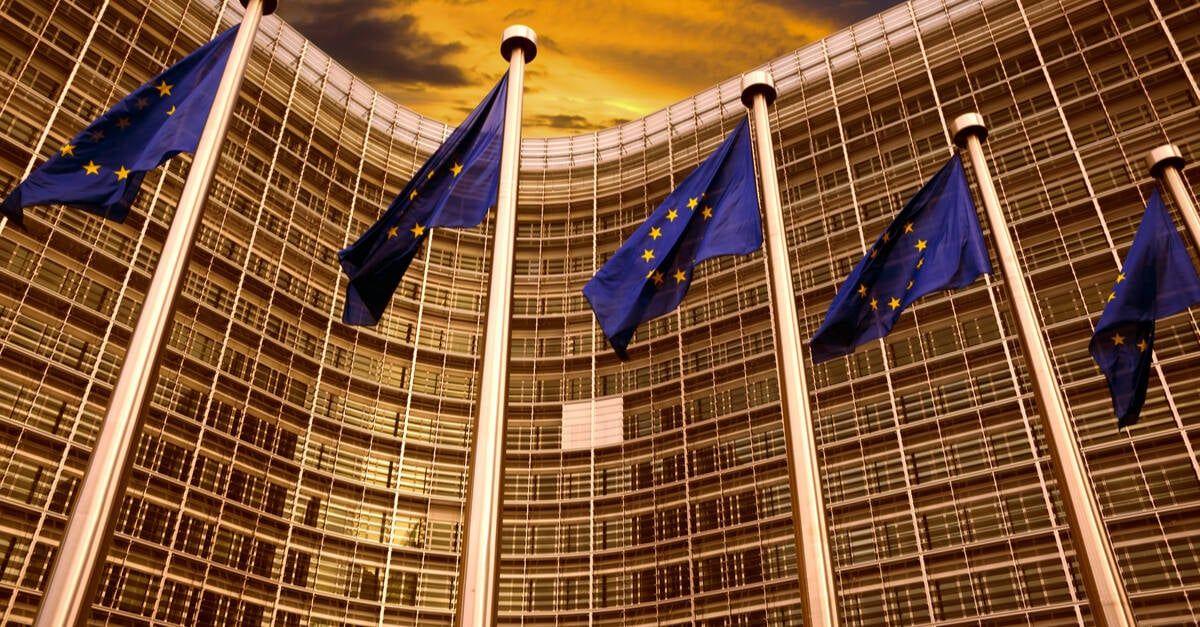Europe's Push for Tech Independence: Breaking Free from US Dominance
3 Sources
3 Sources
[1]
Europe seeks to break its US tech addiction
With President Donald Trump more unpredictable than ever and transatlantic ties reaching new lows, calls are growing louder for Europe to declare independence from US tech. From Microsoft to Meta, Apple to Uber, cloud computing to AI, much of the day-to-day technology used by Europeans is American. The risks that brings were hotly debated before Trump returned to power, but now Europe is getting serious -- pushing to favor European firms in public contracts and backing European versions of well-known US services. As Europe faces Trump's tariffs, and threatens to tax US tech unless the two sides clinch a deal averting all-out trade war, there is a growing sense of urgency. Tech sovereignty has been front and center for weeks: the European Union unveiled its strategy to compete in the global artificial intelligence race and is talking about its own payment system to rival Mastercard. "We have to build up our own capacities when it comes to technologies," EU tech chief Henna Virkkunen has said, identifying three critical sectors: AI, quantum and semiconductors. A key concern is that if ties worsen, Washington could potentially weaponize US digital dominance against Europe -- with Trump's administration already taking aim at the bloc's tech rules. That is giving fresh impetus to demands by industry, experts and EU lawmakers for Europe to bolster its infrastructure and cut reliance on a small group of US firms. "Relying exclusively on non-European technologies exposes us to strategic and economic risks," said EU lawmaker Stephanie Yon-Courtin, who focuses on digital issues, pointing to US limits on semiconductor exports as one example. Around two-thirds of Europe's cloud market is in the hands of US titans Amazon, Microsoft and Google, while the share of European cloud providers has been in steady decline, falling to 13% in 2022. Twenty-three percent of the bloc's total high-tech imports in 2023 came from the United States, second only to China -- in everything from aerospace and pharmaceutical tech to smartphones and chips. Although the idea of a European social media platform to rival Facebook or X is given short shrift, officials believe that in the crucial AI field, the race is far from over. To boost European AI firms, the EU has called for a "European preference for critical sectors and technologies" in public procurement. "Incentives to buy European are important," Benjamin Revcolevschi, chief executive of French cloud provider OVHcloud, told AFP, welcoming the broader made-in-Europe push. Alison James, European government relations lead at electronics industry association IPC, summed it up: "We need to have what we need for our key industries and our critical industries to be able to make our stuff." There are calls for greater independence from US financial technology as well, with European Central Bank chief Christine Lagarde advocating a "European offer" to rival American (Mastercard, Visa and Paypal) and Chinese payment systems (Alipay). Heeding the call, EU capitals have discussed creating a "truly European payment system". Industry insiders are also aware building tech sovereignty requires massive investment, at a moment when the EU is pouring money into defense. In an initiative called EuroStack, digital policy experts said creating a European tech ecosystem with layers including AI would cost 300 billion euros ($340 billion) by 2035. US trade group Chamber of Progress puts it much higher, at over five trillion euros. Different values US Vice President JD Vance has taken aim at tech regulation in denouncing Europe's social and economic model -- accusing it of stifling innovation and unfairly hampering US firms, many of whom have aligned with Trump's administration. But for many, the bloc's values-based rules are another reason to fight for tech independence. After repeated abuses by US Big Tech, the EU created major laws regulating the online world including the Digital Markets Act (DMA) and the Digital Services Act (DSA). Much to the chagrin of US digital giants, the EU in 2018 introduced strict rules to protect European users' data, and last year ushered in the world's broadest safeguards on AI. In practice, supporters say the DMA encourages users to discover European platforms -- for instance giving users a choice of browser, rather than the default from Apple or Google. Bruce Lawson of Norwegian web browser Vivaldi said there was "a significant and gratifying increase in downloads in Europe", thanks in large part to the DMA. Lawson insists it's not about being anti-American. "It's about weaning ourselves off the dependency on infrastructure that have very different values about data protection," Lawson said. Pointing at rules in Europe that "don't necessarily exist in the United States", he said users simply "prefer to have their data processed by a European company".
[2]
Europe seeks to break its US tech addiction
Brussels (Belgium) (AFP) - With President Donald Trump more unpredictable than ever and transatlantic ties reaching new lows, calls are growing louder for Europe to declare independence from US tech. From Microsoft to Meta, Apple to Uber, cloud computing to AI, much of the day-to-day technology used by Europeans is American. The risks that brings were hotly debated before Trump returned to power, but now Europe is getting serious -- pushing to favour European firms in public contracts and backing European versions of well-known US services. As Europe faces Trump's tariffs, and threatens to tax US tech unless the two sides clinch a deal averting all-out trade war, there is a growing sense of urgency. Tech sovereignty has been front and centre for weeks: the European Union unveiled its strategy to compete in the global artificial intelligence race and is talking about its own payment system to rival Mastercard. "We have to build up our own capacities when it comes to technologies," EU tech chief Henna Virkkunen has said, identifying three critical sectors: AI, quantum and semiconductors. A key concern is that if ties worsen, Washington could potentially weaponise US digital dominance against Europe -- with Trump's administration already taking aim at the bloc's tech rules. That is giving fresh impetus to demands by industry, experts and EU lawmakers for Europe to bolster its infrastructure and cut reliance on a small group of US firms. "Relying exclusively on non-European technologies exposes us to strategic and economic risks," said EU lawmaker Stephanie Yon-Courtin, who focuses on digital issues, pointing to US limits on semiconductor exports as one example. Around two-thirds of Europe's cloud market is in the hands of US titans: Amazon, Microsoft and Google, while European cloud providers make up only two percent. Twenty-three percent of the bloc's total high-tech imports in 2023 came from the United States, second only to China -- in everything from aerospace and pharmaceutical tech to smartphones and chips. Although the idea of a European social media platform to rival Facebook or X is given short shrift, officials believe that in the crucial AI field, the race is far from over. To boost European AI firms, the EU has called for a "European preference for critical sectors and technologies" in public procurement. "Incentives to buy European are important," Benjamin Revcolevschi, chief executive of French cloud provider OVHcloud, told AFP, welcoming the broader made-in-Europe push. Alison James, European government relations lead at electronics industry association IPC, summed it up: "We need to have what we need for our key industries and our critical industries to be able to make our stuff." There are calls for greater independence from US financial technology as well, with European Central Bank chief Christine Lagarde advocating a "European offer" to rival American (Mastercard, Visa and Paypal) and Chinese payment systems (Alipay). Heeding the call, EU capitals have discussed creating a "truly European payment system". Industry insiders are also aware building tech sovereignty requires massive investment, at a moment when the EU is pouring money into defence. In an initiative called EuroStack, digital policy experts said creating a European tech ecosystem with layers including AI would cost 300 billion euros ($340 billion) by 2035. US trade group Chamber of Progress puts it much higher, at over five trillion euros. Different values US Vice President JD Vance has taken aim at tech regulation in denouncing Europe's social and economic model -- accusing it of stifling innovation and unfairly hampering US firms, many of whom have aligned with Trump's administration. But for many, the bloc's values-based rules are another reason to fight for tech independence. After repeated abuses by US Big Tech, the EU created major laws regulating the online world including the Digital Markets Act (DMA) and the Digital Services Act (DSA). Much to the chagrin of US digital giants, the EU in 2018 introduced strict rules to protect European users' data, and last year ushered in the world's broadest safeguards on AI. In practice, supporters say the DMA encourages users to discover European platforms -- for instance giving users a choice of browser, rather than the default from Apple or Google. Bruce Lawson of Norwegian web browser Vivaldi said there was "a significant and gratifying increase in downloads in Europe", thanks in large part to the DMA. Lawson insists it's not about being anti-American. "It's about weaning ourselves off the dependency on infrastructure that have very different values about data protection," Lawson said. Pointing at rules in Europe that "don't necessarily exist in the United States", he said users simply "prefer to have their data processed by a European company".
[3]
Europe seeks to break US tech addiction
BELGIUM (AFP) - With United States (US) President Donald Trump more unpredictable than ever and transatlantic ties reaching new lows, calls are growing louder for Europe to declare independence from US tech. From Microsoft to Meta, Apple to Uber, cloud computing to AI, much of the day-to-day technology used by Europeans is American. The risks that brings were hotly debated before Trump returned to power, but now Europe is getting serious - pushing to favour European firms in public contracts and backing European versions of well-known US services. As Europe faces Trump's tariffs, and threatens to tax US tech unless the two sides clinch a deal averting all-out trade war, there is a growing sense of urgency. Tech sovereignty has been front and centre for weeks: the European Union (EU) unveiled its strategy to compete in the global artificial intelligence race and is talking about its own payment system to rival Mastercard. "We have to build up our own capacities when it comes to technologies," EU tech chief Henna Virkkunen has said, identifying three critical sectors: AI, quantum and semiconductors. A key concern is that if ties worsen, Washington could potentially weaponise US digital dominance against Europe - with Trump's administration already taking aim at the bloc's tech rules. That is giving fresh impetus to demands by industry, experts and EU lawmakers for Europe to bolster its infrastructure and cut reliance on a small group of US firms. "Relying exclusively on non-European technologies exposes us to strategic and economic risks," said EU lawmaker Stephanie Yon-Courtin, who focuses on digital issues, pointing to US limits on semiconductor exports as one example. The data paints a stark picture. Around two-thirds of Europe's cloud market is in the hands of US titans Amazon, Microsoft and Google while the share of European cloud providers has been in steady decline, falling to 13 per cent in 2022. Twenty-three per cent of the bloc's total high-tech imports in 2023 came from the US, second only to China - in everything from aerospace and pharmaceutical tech to smartphones and chips. Although the idea of a European social media platform to rival Facebook or X is given short shrift, officials believe that in the crucial AI field, the race is far from over. To boost European AI firms, the EU has called for a "European preference for critical sectors and technologies" in public procurement. "Incentives to buy European are important," Chief Executive of French cloud provider OVHcloud Benjamin Revcolevschi told AFP, welcoming the broader made-in-Europe push. European government relations lead at electronics industry association IPC Alison James summed it up: "We need to have what we need for our key industries and our critical industries to be able to make our stuff." There are calls for greater independence from US financial technology as well, with European Central Bank chief Christine Lagarde advocating a "European offer" to rival American (Mastercard, Visa and Paypal) and Chinese payment systems (Alipay). Heeding the call, EU capitals have discussed creating a "truly European payment system". Industry insiders are also aware building tech sovereignty requires massive investment, at a moment when the EU is pouring money into defence. In an initiative called EuroStack, digital policy experts said creating a European tech ecosystem with layers including AI would cost EUR300 billion by 2035. US trade group Chamber of Progress puts it much higher, at over EUR5 trillion.
Share
Share
Copy Link
Europe is making concerted efforts to reduce its dependence on US technology, driven by concerns over digital sovereignty, data protection, and potential economic risks.

Europe's Growing Concern Over US Tech Dominance
In a significant shift, Europe is intensifying its efforts to break free from its dependence on US technology. This move comes amid growing tensions with the United States, particularly following President Donald Trump's return to power. The European Union is now pushing for greater tech sovereignty, recognizing the risks associated with relying heavily on American tech giants
1
.The Scale of US Tech Influence in Europe
The extent of Europe's reliance on US technology is substantial. From cloud computing to AI, and from operating systems to social media platforms, American companies dominate the European tech landscape. Notably, around two-thirds of Europe's cloud market is controlled by US giants Amazon, Microsoft, and Google, while European providers' share has declined to just 13%
2
.EU's Strategic Response
To address this imbalance, the EU is taking several strategic steps:
-
Prioritizing European Firms: The EU is pushing to favor European companies in public contracts and supporting the development of European alternatives to well-known US services
3
. -
Focus on Critical Technologies: EU tech chief Henna Virkkunen has identified AI, quantum computing, and semiconductors as critical sectors for development
1
. -
European AI Strategy: The EU has unveiled a strategy to compete in the global AI race, emphasizing the need for "European preference" in critical sectors
2
. -
Financial Technology Independence: There are calls for a "European offer" to rival American and Chinese payment systems, with discussions underway to create a truly European payment system
3
.
Motivations Behind the Push
Several factors are driving Europe's quest for tech independence:
-
Strategic and Economic Risks: EU lawmakers, like Stephanie Yon-Courtin, warn of the risks of relying exclusively on non-European technologies
2
. -
Data Protection and Values: European officials emphasize the importance of aligning technology with European values, particularly regarding data protection
1
. -
Regulatory Differences: The EU's stricter tech regulations, including the Digital Markets Act (DMA) and Digital Services Act (DSA), reflect a different approach to tech governance compared to the US
2
.
Related Stories
Challenges and Investments
Achieving tech sovereignty will require significant investment and effort:
-
Financial Requirements: Estimates for creating a European tech ecosystem range from €300 billion to over €5 trillion by 2035
3
. -
Balancing Priorities: This push comes at a time when the EU is also increasing defense spending, creating potential resource allocation challenges
2
.
Impact and Reception
The EU's efforts are already showing some results:
-
Increased European Tech Adoption: Bruce Lawson of Norwegian web browser Vivaldi reports a significant increase in downloads in Europe, partly due to the DMA
1
. -
Industry Support: European tech companies, like OVHcloud, welcome the push for "made-in-Europe" solutions
3
.
As Europe continues its pursuit of tech independence, the global tech landscape may see significant shifts, potentially reshaping the balance of digital power between the EU and the US.
References
Summarized by
Navi
[1]
[2]
[3]
Related Stories
Big Tech Embraces US Exceptionalism in Trump's Second Term
15 May 2025•Policy and Regulation

Europe Pushes for Digital Sovereignty as Leaders Rally Against US Tech Dominance at Berlin Summit
18 Nov 2025•Policy and Regulation

EU Considers Major Rollback of GDPR and AI Regulations Amid Competitiveness Concerns
10 Nov 2025•Policy and Regulation

Recent Highlights
1
ByteDance's Seedance 2.0 AI video generator triggers copyright infringement battle with Hollywood
Policy and Regulation

2
Demis Hassabis predicts AGI in 5-8 years, sees new golden era transforming medicine and science
Technology

3
Nvidia and Meta forge massive chip deal as computing power demands reshape AI infrastructure
Technology





